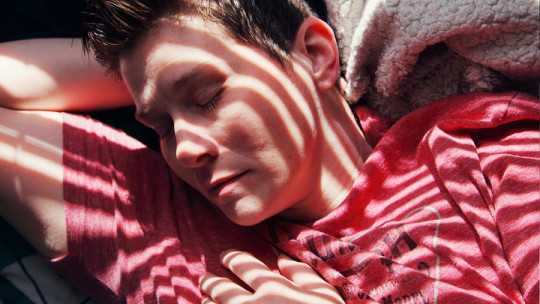Have you ever experienced a feeling of psychophysical weakness, seemingly without cause? This sensation is called asthenia, a term that indicates the maximum degree of tiredness. Unlike fatigue, which appears after getting tired and after a workload, asthenia also manifests itself under conditions of rest. It is described by people as fatigue that does not improve with rest and worsens with physical activity and mental effort.
It can be of psychological or physical origin, but it should not be considered a disease, but rather a symptom that can develop as a side effect of some medications. In this PsychologyFor article, we will delve together into the Emotional asthenia: what it is, symptoms, causes and treatment recommended in these cases.
What is emotional asthenia
Emotional asthenia is a condition that occurs when you feel a strong lack of physical and mental energy and it is no longer possible to carry out elementary and basic actions. Sometimes chronic fatigue can arise from psychological stress, caused by depression, excessive stress or anxiety, and cause concentration difficulties.
In these cases, one feels dejected, emptied and has difficulties in carrying out any type of action , even if you do not feel pain or have no physical limitations. For example, people with depression often feel tired and fatigued.
In fact, people who suffer from very intense work stress can experience prolonged episodes of asthenia. This discomfort is known as burnout syndrome, a true form of exhaustion or wear and tear derived from the nature of some professional tasks.
Causes of emotional asthenia
What causes emotional asthenia? It may be a physiological response to the excessive accumulation of stress that different life situations can cause. According to some statistical research, the main causes of emotional asthenia are:
- Problems at work or at school.
- Family, financial or health problems.
- Be victim of an abusive relationship.
- The death of a beloved family member or a very close friend.
- Anxiety attacks repeated or have ongoing worries. In this article, we tell you what to do when faced with an anxiety attack.
- Obsessive-compulsive disorder, associated with anxiety.
- The succession of physical trauma in a certain anatomical area of the body.
- Being involved in a serious natural disaster.
- Suffering from depression or similar disorders : Most of these cases originate due to stress and/or depression.
Symptoms of emotional asthenia
People who suffer from emotional asthenia live in a constant state of lack of strength and physical and psychological weakness. They often feel the need to rest and a general feeling of sleepiness, but this cannot be eliminated, even by sleeping.
Furthermore, muscular force is so small that, although particular movements can be performed, they are always done with little energy and slowness. The main symptoms of emotional asthenia are:
- Physical and mental fatigue extreme.
- Exhaustion.
- Drowsiness.
- Lack of memory and concentration difficulties.
- Slowness in movements and coordination disorders.
- Lack of strength.
- Difficulties carrying out daily activities : with repercussions on professional life and relationships.
- Headaches.
- Muscle pains and joints.
- Numbness.
- Tingle.
Treatment of emotional asthenia.
What to do to combat asthenia? First of all, it is necessary eliminate all underlying causes of psychophysical fatigue. Then we must act on all the sources of stress that have overloaded our brain circuits.
Regardless of the causes of emotional asthenia, we can help the person change their lifestyle, for example, eating a balanced diet and encouraging them to exercise regularly.
Thus, to treat emotional asthenia, it is necessary to put into practice a whole series of Strategies designed to promote relaxation and the elimination of stress factors such as the following:
- Reduce work or study load.
- Avoid expanding your to-do or work list.
- Frequent breaks during work or study. Discover other ways to be proactive at work.
- Sleep at least 8 hours a night.
- Establish a daily routine.
- Listen to classical or relaxing music.
- Play sports or take walks outdoors.
- Follow a healthy and balanced diet.
- Reduce consumption of caffeine and alcoholic beverages.
- Intake of magnesium and potassium and omega 3 food supplements, always under medical indication.
- Dedicate moments of the day to relaxing.
- Practice meditation or yoga. In this article you will find relaxation techniques for beginners.
This article is merely informative, at PsychologyFor we do not have the power to make a diagnosis or recommend a treatment. We invite you to go to a psychologist to treat your particular case.
If you want to read more articles similar to Emotional asthenia: what it is, causes, symptoms and treatment we recommend that you enter our Clinical Psychology category.
Bibliography
- Alarcón Terroso, R., Gea Serrano, A., Martínez Maurandi, J., Pedreño Planes, JJ, & Pujalte Maritínez, L. (2005). Clinical practice guide for depressive disorders.
- Labrador, FJ, Vallejo, M. Á., Matellanes, M., Echeburúa, E., Bados, A., & Fernández-Montalvo, J. (2003). The effectiveness of psychological treatments. Infocopno. 84.
- Manassee, L. (2005). Overcoming anxiety and panic: 121 tips applicable to real life. Barcelona: Obelisco Editions.









